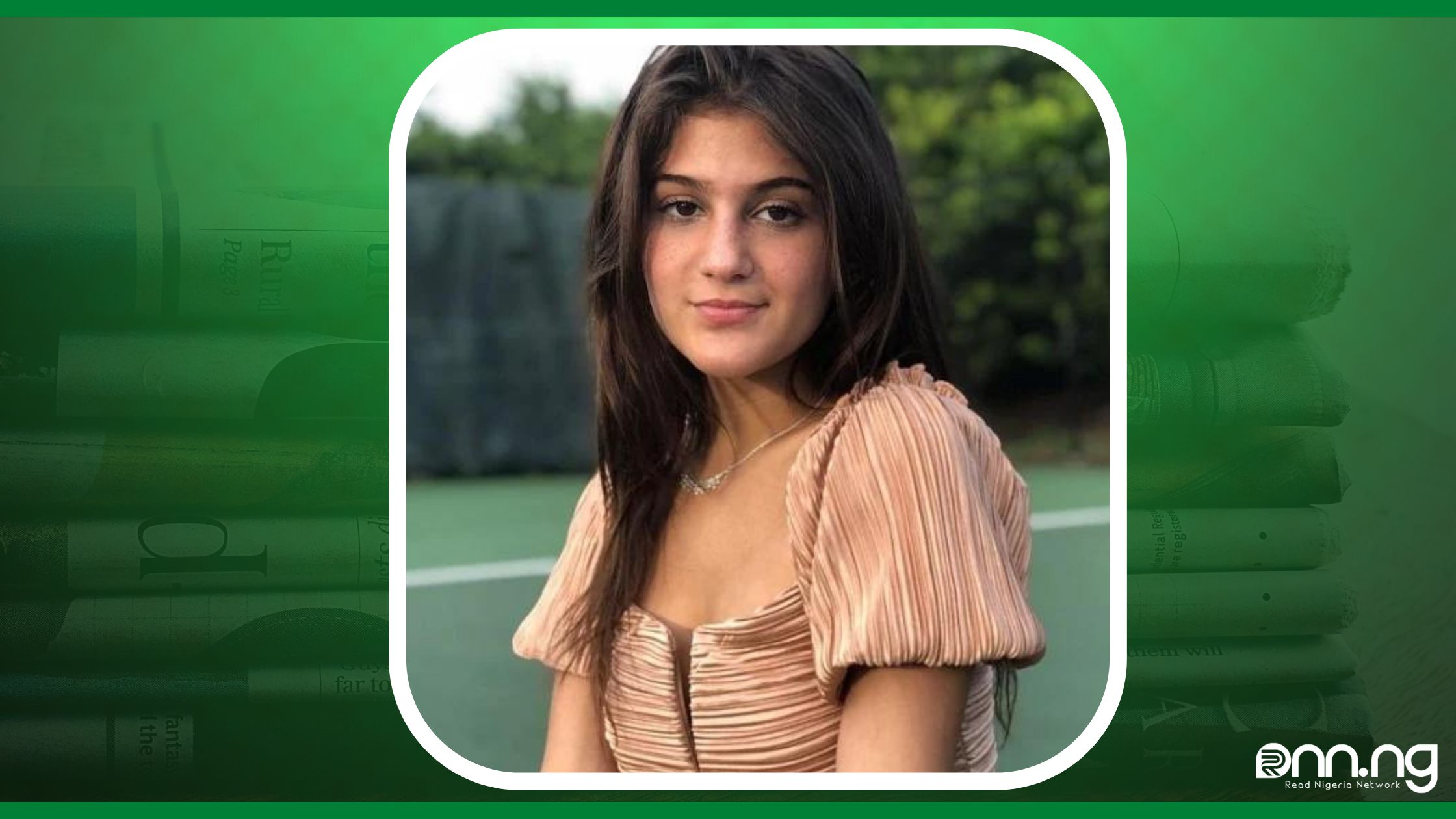Alright, listen up, folks. If you've been scrolling through the internet lately, chances are you've stumbled upon some headlines about Jenny Popach and her so-called "nudes." Let's be real here, the internet loves drama, and this topic has definitely sparked a lot of buzz. But before you dive headfirst into the chaos, let's break it down and separate fact from fiction. Jenny Popach nudes? Let's get to the bottom of this, shall we?
You might be wondering why this topic is making waves. Well, it’s simple—people love a good scandal, and the internet thrives on sensationalism. But here's the thing: not everything you read online is true. In fact, most of the time, it's just clickbait designed to grab your attention and make you click. So, if you're here looking for the truth, you've come to the right place.
In this article, we're going to dive deep into the world of Jenny Popach, explore the rumors surrounding her, and uncover the real story behind the headlines. We'll also talk about why it's important to fact-check before believing everything you see online. So, buckle up, because we're about to take a ride through the wild world of internet rumors.
Read also:Janeane Garofalo Nude A Candid Look At The Controversy And Facts
Who is Jenny Popach?
Before we jump into the nitty-gritty of the rumors, let’s first talk about who Jenny Popach really is. Jenny Popach is a name that has been circulating on the internet, often associated with clickbait headlines and sensational stories. But who is she, really? Is she a public figure, a model, or just an ordinary person caught in the whirlwind of internet fame?
The truth is, there isn't much concrete information about Jenny Popach. Some sources claim she's a model, while others say she's just an internet sensation created by savvy marketers. Whatever the case may be, one thing is for sure—her name has become synonymous with controversy.
Biography: Getting to Know Jenny Popach
Let’s take a closer look at the life and times of Jenny Popach. Below is a table summarizing some key details about her:
| Full Name | Jenny Popach |
|---|---|
| Date of Birth | Unknown |
| Occupation | Model/Internet Sensation |
| Place of Birth | Unknown |
| Claim to Fame | Internet Rumors and Clickbait Headlines |
As you can see, there’s not much concrete information about Jenny Popach. This lack of detail is what fuels the rumors and speculation surrounding her.
The Rumor Mill: Jenny Popach Nudes
Now, let's talk about the elephant in the room—those so-called Jenny Popach nudes. If you've been following the drama, you've probably seen headlines claiming that her private photos have been leaked. But is there any truth to these claims?
The short answer is no. There is no credible evidence to suggest that Jenny Popach has ever leaked any private photos. In fact, most of these stories are just clickbait designed to get you to click on a link. It's a classic internet trick, and it works because people are naturally curious.
Read also:Natalie Mariduena Nude Debunking Myths Facts And Understanding Privacy
Why Do These Rumors Spread?
So, why do these rumors spread so quickly? It all comes down to human psychology. People are naturally drawn to scandalous stories, and the internet provides the perfect platform for these stories to spread. Social media, forums, and message boards all contribute to the rapid dissemination of information—whether it's true or not.
Additionally, many websites and content creators rely on clickbait to generate traffic and ad revenue. By creating sensational headlines, they can lure unsuspecting readers into clicking on their links, even if the content doesn't live up to the hype.
The Impact of Clickbait on Society
Let’s take a step back and talk about the bigger picture here. Clickbait isn't just annoying—it can have real-world consequences. When people believe false information, it can lead to misunderstandings, mistrust, and even harm. In the case of Jenny Popach, the rumors surrounding her nudes could damage her reputation and affect her personal life.
Moreover, clickbait contributes to the spread of misinformation online. This can be especially dangerous when it comes to topics like politics, health, and finance. If people can't tell fact from fiction, how can they make informed decisions?
How to Spot Clickbait
So, how can you protect yourself from falling for clickbait? Here are a few tips:
- Look for sensational headlines—these are often designed to grab your attention.
- Check the source of the information. Is it a reputable website or a sketchy blog?
- Do some research before believing everything you read. A quick Google search can often clear up any confusion.
- Be skeptical of stories that seem too good (or bad) to be true.
The Importance of Fact-Checking
In today's digital age, fact-checking is more important than ever. With so much information available at our fingertips, it's easy to get overwhelmed and fall for false information. But by taking the time to verify the facts, we can ensure that we're making informed decisions and not spreading misinformation.
There are several fact-checking websites and tools available that can help you verify the accuracy of a story. Some popular ones include Snopes, FactCheck.org, and PolitiFact. These sites are run by professionals who specialize in verifying the truthfulness of claims made online.
Why Fact-Checking Matters
Fact-checking isn't just about avoiding embarrassment—it's about being a responsible digital citizen. By verifying the information we consume, we can help combat the spread of misinformation and create a more informed society. This is especially important when it comes to sensitive topics like politics, health, and finance.
The Legal Implications of Leaked Photos
Now, let's talk about the legal side of things. If someone were to leak private photos without consent, it could have serious legal consequences. In many countries, sharing intimate images without the subject's permission is illegal and can result in criminal charges.
Furthermore, the victim of such a leak could also pursue civil action against the person responsible. This could result in hefty fines and even jail time. So, if you're thinking about sharing someone's private photos, think again—it's not only unethical, but it could also land you in serious trouble.
Protecting Yourself Online
So, how can you protect yourself from becoming a victim of online harassment or revenge porn? Here are a few tips:
- Be careful about who you share intimate photos with. Once a photo is sent, you lose control over it.
- Use strong passwords and enable two-factor authentication on all your accounts.
- Be cautious about what you share online. Once something is on the internet, it's there forever.
- Report any suspicious activity to the authorities immediately.
The Role of Social Media
Social media plays a huge role in the spread of information—both true and false. Platforms like Facebook, Twitter, and Instagram are designed to encourage sharing, which can be both a blessing and a curse. On one hand, it allows us to connect with people from all over the world. On the other hand, it can also facilitate the rapid spread of misinformation.
Many social media platforms have taken steps to combat the spread of fake news and misinformation. For example, Facebook has partnered with fact-checking organizations to flag false stories, while Twitter has implemented algorithms to detect and remove bots that spread false information.
How to Use Social Media Responsibly
Using social media responsibly is key to creating a healthy online environment. Here are a few tips:
- Think before you share. Is the story credible? Have you verified the facts?
- Be respectful in your interactions with others. Cyberbullying is a real issue, and we all have a responsibility to treat others with kindness and respect.
- Report any suspicious activity or harassment to the platform administrators.
Conclusion: The Truth About Jenny Popach Nudes
Alright, folks, let's wrap this up. Jenny Popach nudes? It's all a bunch of nonsense. The internet loves a good scandal, but it's important to remember that not everything you read online is true. By staying informed and fact-checking before believing everything you see, you can protect yourself from falling for clickbait and misinformation.
So, the next time you see a sensational headline, take a step back and think critically. Do some research, verify the facts, and make an informed decision. And if you're ever in doubt, remember this: if it sounds too good (or bad) to be true, it probably is.
Finally, I’d like to encourage you to share this article with your friends and family. The more people who are aware of the dangers of clickbait and misinformation, the better. Together, we can create a more informed and responsible digital community. So, what are you waiting for? Hit that share button and spread the word!
Table of Contents


